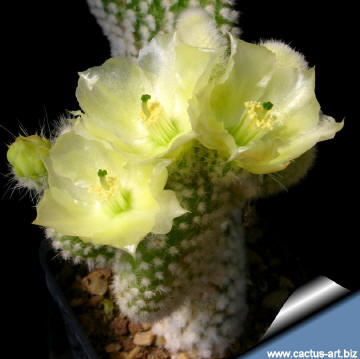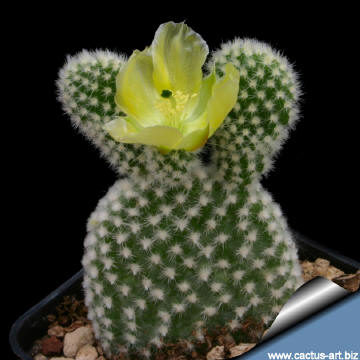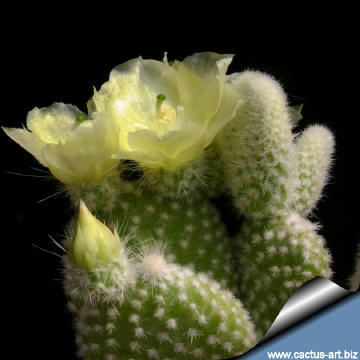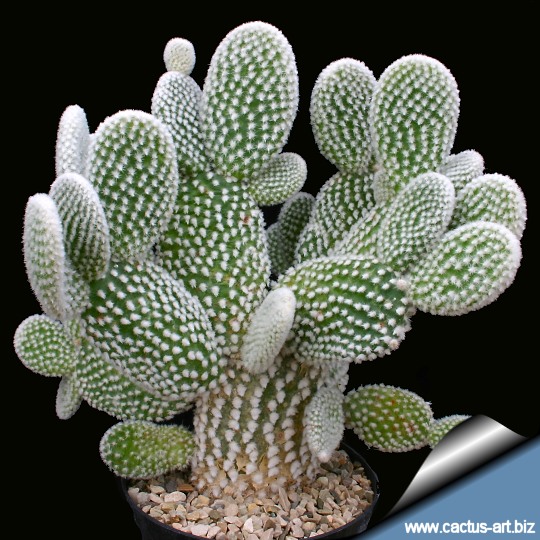|
|
|

O. microdasys may look soft and touchable, but don't! The cladode
is protected by innumerable minutely barbed glochids that detach very
easily on being touched and stuck to the skin where they are difficult
to see and remove. They can cause considerable discomfort.
|
|

|
 |
.
|
 |
 |
|
Advertising
|
|
|
|
|
Family:
Cactaceae (Cactus
Family)
Scientific Name:
Opuntia microdasys
(Lehmann) Pfeiffer
forma albata ( = albispina )
Scientific name:
Mexico central and northern Mexico
Origin:
Garden origin (Nursery
produced cultivar)
Conservation status: Listed in
CITES appendix 2.
Common Names include: Bunny Ears, Polka Dot Cactus
Synonyms:
- Cactus microdasys
- Opuntia macrocalyx
|
|
Description: Freely clustering succulent with
miniature pads. It forms a dense shrub, to 40-60 (occasionally more) cm
high, up to1.5 m across.
Cladodes: 7.5-15 cm long by half as wide.
Spines: It has no spines, but instead has numerous white or
yellow hair-like glochids 2-3 mm long in dense clusters.
Flowers: Lemon yellow flowers, 3-5 cm in diameter followed by red
fruits.
Note: The very closely related Opuntia
rufida differs in having reddish-brown glochids; it occurs
further north in northern Mexico, and into western Texas. Some botanists
treat the two as a single species.

|
|
|
|
Cultivation: They are easy to culture. Require full sun to partial
shade with a well-drained soil mix. The plants are watered and allowed
to dry thoroughly before watering again. During the winter months, the
plants enjoy a cold place where the temperature is dropped to 5/10° C,
but hardy to -5° C for short periods of time if very
dry. During this period water only enough to keep the pads from
shrivelling.
Propagation: Cuttings taken at any time in the growing season.
Remove a pad from the plant and then leave it in a dry sunny place for a
couple of days to ensure that the base is thoroughly dry and has begun
to callous. Pot up into a porous compost. Very easy, rooting within a
month.
|
|
Photo of conspecific taxa, varieties, forms and
cultivars of Opuntia microdasys.


|
|